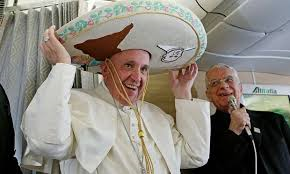Solemnity of Our Lord Jesus Christ, King of the Universe
“My kingdom does not belong to this world.” Jn. 18:35
In the year 313 AD, a remarkable and historic event took place – a happening that significantly changed history.
Previous to this date, Christians were a condemned and persecuted minority. They were not allowed to practice their religion. Their sacred books were collected and burned. Their bodies were tortured, mutilated, starved, and sentenced to gladiatorial contests to amuse spectators.
There was even an official name given to these oppressions that lasted over a time period of two and a half centuries: The Great Persecution.
It all came to a sudden end when the Emperor Constantine experienced a dramatic event at the Battle of the Milvian Bridge. He claimed victory due to a vision he had before the battle in which he saw a cross of light above the sun, and with it the words “In this sign you will conquer.” And he did.
In 313, Constantine then announced “that it was proper that the Christians and all others should have liberty to follow that mode of religion which to each of them appeared best.” Later, in the Edict of Thessalonica of 380, Christianity became the state religion.
What a turnaround!
As a result, Christianity was able to leave the catacombs and become the builders of great cathedrals, to leave the deprivations of being the powerless and take on the position of becoming the powerful, to leave the terrors of being dominated and assume the role of becoming the ones who did the dominating.
With all this, however, came the same temptations that those in any position of authority have to come to terms with: the three “P’s” of power, prestige, and possessions.
The history of the Church up until the present time is the story of how well or how poorly we have done just that.
The word “authority” is central to this story – as it is for each of us in the tale of our own lives. In fact, it’s also the essential element to understanding Jesus’ words in today’s gospel: “My kingdom does not belong to this world.”
What Jesus means by that is that his understanding of true leadership and authority is radically different from that of the traditional king or emperor. In his view, for example, a true king, an authentic leader should be one who is not dedicated to personal glory or amassing great wealth or demonstrating domination over others.
Instead, his kingship is summed up in one word: service.
In his epistle to the Colossians, for example, Paul states it best when he writes that God’s kingship is one in which we are “rescued … from the power of darkness and transferred … into the kingdom of his beloved Son, in whom we have redemption, the forgiveness of sin.”
The problem with this kind of leadership and service and authority is that it is costly on a personal level. It threatens the powers-that-be. It speaks truth to power. It challenges those who want to dominate and possess. It critiques the establishment. It undermines the status quo. It calls into question the desire for greed and arrogance and ambition and the seeking of endless pleasures.
That’s what Jesus did with the kings and the authority figures of his time. And for it he paid the price of being assassinated.
Because of that, his only throne was a bare, wooden cross. His only garments became a loin cloth. His retinue of courtiers consisted of two thieves crucified, one on his right and one on his left. His final words were not an edict pronounced with the majesty of an imperial order, but the simple words of mercy: “Today you will be with me in paradise.”
He was killed because his notion of authority and leadership threatened the powers of his time – as it does to this day.
Perhaps what is most important about understanding the kingship of Jesus is this: the only thing he really wants to be king of is our hearts; the only thing he wants to communicate to us is how infinitely loved and treasured we are; the only thing he wants power over is our determination to escape full maturity by our refusal to leave our comfort zones.
As one writer puts it, “We praise, worship and kiss the cross of Christ because in the depths of our being we feel the need to give thanks to God for his boundless love. But we can’t forget one thing: what Jesus asks of us is not to just kiss the cross, but to carry it.”
And the best way to carry it is by not allowing anything else to take his place as the one who reigns supreme in our lives – not greed, not arrogance, not ambition, not unlimited pleasures.
That’s why Jesus chose a cross as the place where real power rules. Because unless we die to our egos, unless we forgive as Jesus did while hanging on a cross, unless we become true servants of mercy, unless we carry the cross that Jesus implores us to do – the cross of service and generosity and mercy, we will not find the space in our hearts for Jesus to reside as king.
“My kingdom does not belong to this world.”
Hopefully ours won’t either.


